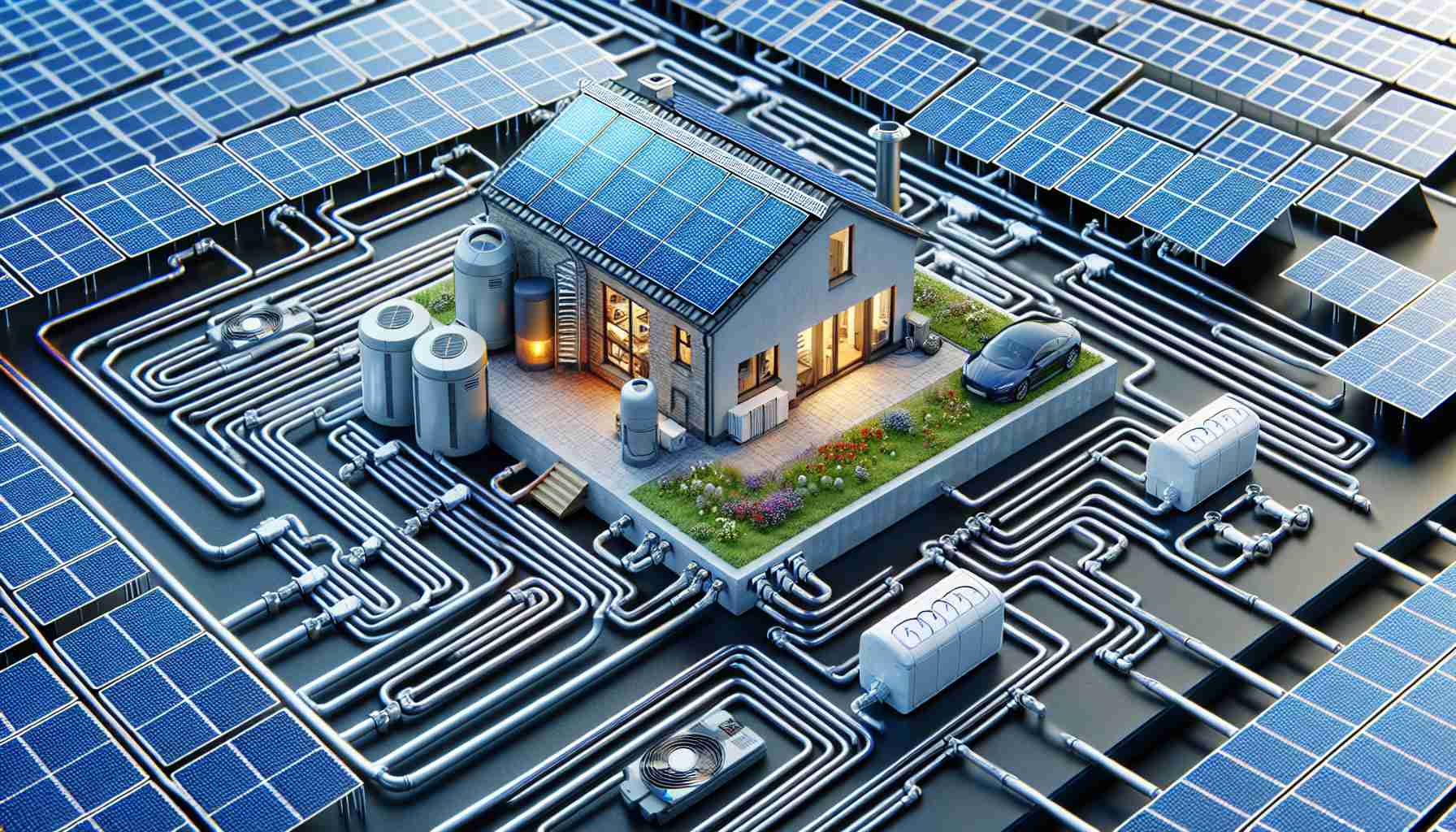New research conducted by the Fraunhofer Institute for Solar Energy Systems (Fraunhofer ISE) in Germany has shown that combining photovoltaic (PV) panel systems with batteries and heat pumps can improve the efficiency of heat pumps and reduce dependency on grid energy.
Researchers from Fraunhofer ISE analyzed the performance of a PV-heat pump-battery system with grid-ready smart control in a single-family home built in 1960 in Freiburg, Germany. The results showed that smart control increased the heat pump’s delivery temperature for hot water by 4.1 K, which in turn reduced the seasonal performance factor (SPF) by 5.7% from 3.5 to 3.3. Additionally, in space heating mode, smart control reduced SPF by 4% from 5.0 to 4.8.
The researchers noted that the main advantage of PV-heat pump systems is their ability to reduce grid energy consumption and lower electricity costs. The heat pump system used in the study was a source heat pump with a power of 13.9 kW, designed with a buffer tank for space heating. It also utilized a domestic hot water tank and a water station for producing hot water. Both tanks were equipped with electric auxiliary heaters.
The PV system was south-facing with a tilt angle of 30 degrees. It had a capacity of 12.3 kW and a module area of 60 square meters. The battery was connected to the DC panel and had a capacity of 11.7 kWh. The selected house had a heated living area of 256 m2 and an annual heat demand of 84.3 kWh/m²a.
The Fraunhofer ISE researchers also highlighted that the grid-ready control has the ability to interact with the electrical grid and adjust the system’s operation accordingly. “During periods of high network load, the grid operator can shut down the heat pump to reduce network load or perform forced grid connection in other cases,” explained the researchers.
In the proposed system configuration, PV energy needs to be initially used to power household appliances, and any excess energy is stored in the battery. Excess energy can only be exported to the grid when it is not required by the household and the battery is fully charged. If both the PV system and battery are unable to meet the home’s energy demand, grid energy can be utilized.
The study took into account levels of self-consumption, solar energy fraction, heat pump efficiency, and the impact of the PV system and battery on heat pump performance. High-resolution data per minute from January to December 2022 were used, and it was found that smart grid-ready control increased the heat pump’s delivery temperatures for hot water by 4.1 K. It was also found that the system achieved an overall self-consumption level of 42.9% over the course of a year, resulting in financial benefits for homeowners.
The researchers emphasize that their study was conducted for specific systems and may vary depending on the building and energy system specifications. In the future, they will continue researching various combinations of PV-heat pump systems with different control concepts.
Source: Fraunhofer ISE, Emiliano Bellini, Solar Energy Advances, pv-magazine.com
FAQ Section
The source of the article is from the blog krama.net
